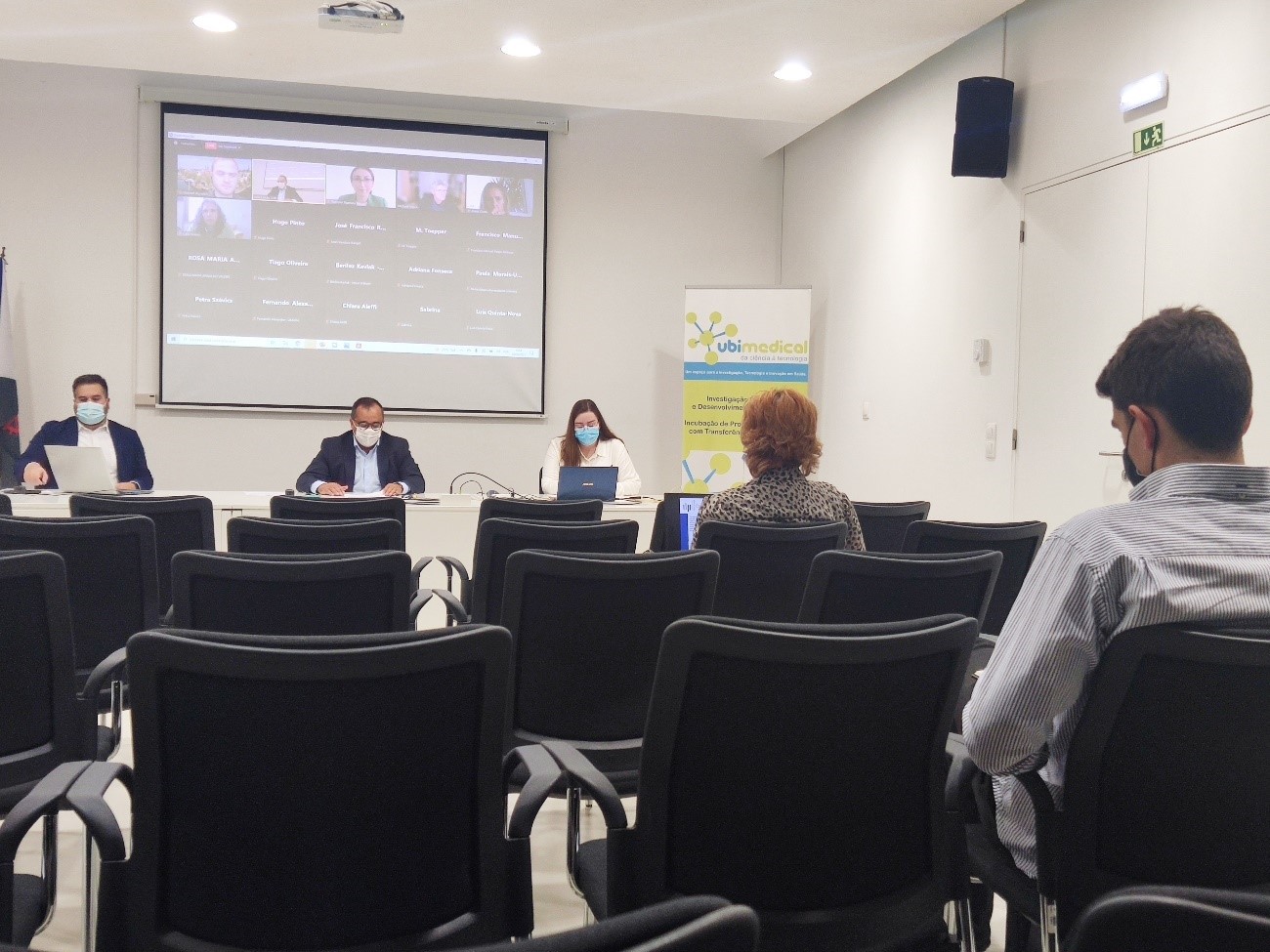The twenty-sixth Workshop of the Portuguese Association for Regional Development (APDR), took place in the past September 30th and October 1st , at the UBImedical Incubator building, of the University of Beira Interior, under the theme: “Civic Universities, Ecosystems and Regional Development in Regions of Low Industrial Density”; counting with an Iberian organizing committee composed by: João Leitão (NECE, UBI); Dina Pereira (NECE, UBI); Esteban Hidalgo (Universidad de Extremadura); Francisco Moruno (Universidad de Extremadura); and Jose Preciado (Universidad de Extremadura). The event was organized with the support of the European Project: R&I Loop, project number: 2020-1-PT01-KA203-078366, under the Erasmus + Program, totaling 24 presentations, which were presented in person and remotely, with online broadcasting via Facebook.
The first day of the Workshop included the opening session, the Key-note Speech provided by Michael Fritsch (Friedrich Schiller University Jena, Germany) and Michael Wyrwich (Rijksuniversiteit Groningen, the Netherlands), who addressed the topic “Does successful innovation require large urban areas? Germany as a Counter-Example”, and also a panel presentation on: “Civic Universities and Ecosystems”, moderated by Joana Costa (University of Aveiro, Portugal).
The second day began with two parallel panels, one dedicated to “Best Practices”, which was moderated by Rosa Valdés (Universidad Politécnica de Madrid, Spain) and another on “Intelligent Specialization I” moderated by José Preciado (Universidad de Extremadura, Spain), following the event with a panel on: “Civic Universities: Concepts and Applications”, which was moderated by Hugo Pinto (Centre for Social Studies, University of Coimbra and University of Algarve, Portugal). In the afternoon, Fernando Alexandre (University of Minho, Portugal) was the Keynote Speaker, making a presentation on: “European Structural Investment Funds and productivity: an empirical analysis”; followed by a second panel on: “Smart Specialization II”; which was moderated by Ramona Tiganasu (Alexandru Ioan Cuza University of Iasi, Romania).
At the end of the event the organizing committee awarded three prizes, first, in the category of “Best Practice”, the presentation of Ângela Gonçalves – “The civic mission of fostering entrepreneurship in BIOHEALTH: the case study of BIO-ALL, an Erasmus+ project”, was the distinguished one. Second, in the category of “Best Junior Presentation”, the researchers Petra Szávics and Sabrina Tomasi were distinguished, with the presentation entitled: “Drivers and challenges of university involvement related to RIS3: Perceptions from five European regions”. Third, the “Best Paper” award went to Hugo Pinto, for his presentation entitled: “Institutionalization of innovation in peripheral regions: the role of universities in smart specialization in Portugal”.
This workshop is an important milestone for creating an international discussion forum devoted to multidimensional approaches on the role played by civic universities in promoting ecosystems, as well as structural dynamics and change, and their corresponding impacts on the quality of life of citizens and regional development, especially in low density regions. It also made available a set of international benchmarking case studies on best practices and initiatives to create and foster sustainable ecosystems at the regional level. Furthermore, it highlighted how these international best practices can be replicated in the future to design a new generation of smart public policies to foster the creation of more innovative business units and promote sustainable practices.





